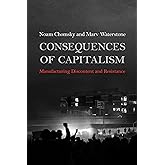
Enjoy fast, free delivery, exclusive deals, and award-winning movies & TV shows with Prime
Try Prime
and start saving today with fast, free delivery
Amazon Prime includes:
Fast, FREE Delivery is available to Prime members. To join, select "Try Amazon Prime and start saving today with Fast, FREE Delivery" below the Add to Cart button.
Amazon Prime members enjoy:- Cardmembers earn 5% Back at Amazon.com with a Prime Credit Card.
- Unlimited Free Two-Day Delivery
- Streaming of thousands of movies and TV shows with limited ads on Prime Video.
- A Kindle book to borrow for free each month - with no due dates
- Listen to over 2 million songs and hundreds of playlists
- Unlimited photo storage with anywhere access
Important: Your credit card will NOT be charged when you start your free trial or if you cancel during the trial period. If you're happy with Amazon Prime, do nothing. At the end of the free trial, your membership will automatically upgrade to a monthly membership.

Download the free Kindle app and start reading Kindle books instantly on your smartphone, tablet, or computer - no Kindle device required.
Read instantly on your browser with Kindle for Web.
Using your mobile phone camera - scan the code below and download the Kindle app.

Disorienting Neoliberalism: Global Justice and the Outer Limit of Freedom
Purchase options and add-ons
Disorienting Neoliberalism argues that people can and should become disposed to solidarity with each other once they see global injustices as a limit on their own freedom. Benjamin L. McKean reorients us by taking us inside the global supply chains that assemble clothes, electronics, and other goods, revealing the tension between neoliberal theories of freedom and the hierarchical, coercive reality of their operations. In this new approach to global justice, he explains how neoliberal institutions and ideas constrain the freedom of people throughout the supply chain from worker to consumer. Rather than a linked set of private market exchanges, supply chains are political entities that seek to govern the rest of us. Where neoliberal institutions train us to see each other as competitors, McKean provides a new orientation to the global economy in which we can see each other as partners in resisting a shared obstacle to freedom -- and thus be called to collective action.
Drawing from a wide range of thinkers, from Hegel and John Rawls to W. E. B. Du Bois and Iris Marion Young, Disorienting Neoliberalism shows how political action today can be meaningful and promote justice, moving beyond the pity and resentment global inequality often provokes to a new politics of solidarity.
- ISBN-100197674194
- ISBN-13978-0197674192
- PublisherOxford University Press
- Publication dateOctober 4, 2022
- LanguageEnglish
- Dimensions9.33 x 0.7 x 6.05 inches
- Print length304 pages
Discover the latest buzz-worthy books, from mysteries and romance to humor and nonfiction. Explore more
Frequently purchased items with fast delivery
Editorial Reviews
Review
About the Author
Product details
- Publisher : Oxford University Press (October 4, 2022)
- Language : English
- Paperback : 304 pages
- ISBN-10 : 0197674194
- ISBN-13 : 978-0197674192
- Item Weight : 15.2 ounces
- Dimensions : 9.33 x 0.7 x 6.05 inches
- Best Sellers Rank: #1,739,913 in Books (See Top 100 in Books)
- #495 in Political History (Books)
- #564 in Ethics
- #886 in Public Policy (Books)
- Customer Reviews:
Customer reviews
- 5 star4 star3 star2 star1 star5 star62%38%0%0%0%62%
- 5 star4 star3 star2 star1 star4 star62%38%0%0%0%38%
- 5 star4 star3 star2 star1 star3 star62%38%0%0%0%0%
- 5 star4 star3 star2 star1 star2 star62%38%0%0%0%0%
- 5 star4 star3 star2 star1 star1 star62%38%0%0%0%0%
Customer Reviews, including Product Star Ratings help customers to learn more about the product and decide whether it is the right product for them.
To calculate the overall star rating and percentage breakdown by star, we don’t use a simple average. Instead, our system considers things like how recent a review is and if the reviewer bought the item on Amazon. It also analyzed reviews to verify trustworthiness.
Learn more how customers reviews work on AmazonTop reviews from the United States
There was a problem filtering reviews. Please reload the page.
- Reviewed in the United States on August 18, 2022This wonderful book tackles a familiar problem: what should people who are concerned about justice do when we hear about the injustices suffered by those laboring halfway around the world to produce the goods we buy and consume? McKean's rich, engaging, and clarifying text explains why this question feels so impossible to answer, and supplies a way for thinking about what connects consumers to workers all along the way of winding, global supply chains. An absolute must-read for anyone interested in global justice, capitalism, and neoliberalism.
- Reviewed in the United States on May 11, 2022Anyone who is interested in the injustices in the global supply chain system should read this book. Rather than start from ideal theory about how the world show work, McKean starts from injustices that actually exist and asks how we should think about the justice and morality of such problems. This leads him to propose innovative practical situation and meditation on the nature of freedom.














